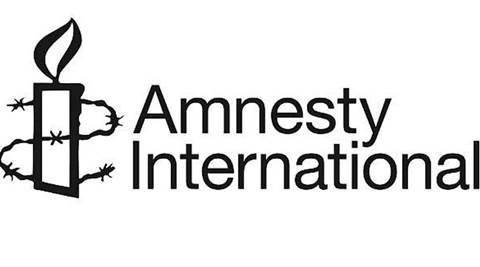Amnesty, facing sedition case for Kashmir protest event, always vocal on Balochistan
Apart from urging the Pakistani establishment to act, Amnesty has also briefed the US Congress on the situation in Balochistan.
 Amnesty, which does not have a national office in Pakistan, has periodically raised the issue of human rights violations in Balochistan.
Amnesty, which does not have a national office in Pakistan, has periodically raised the issue of human rights violations in Balochistan.
On Independence Day, as Prime Minister Narendra Modi expressed appreciation for the goodwill shown towards him — and by extension towards all India’s 125 crore people — by the people of Balochistan, the police in Bengaluru, acting on a complaint by the ABVP, students’ wing of the BJP, filed a case of sedition against Amnesty International for anti-India slogans allegedly raised at an event organised by the NGO two days earlier to protest alleged human rights violations in Jammu and Kashmir.
Amnesty, which does not have a national office in Pakistan, has periodically raised the issue of human rights violations in Balochistan.
On July 29, the organisation called for “urgent action” after the disappearance of Baloch human rights and political activist Wahid Baloch. It asked people to write to Pakistan’s President and Prime Minister, and to the Chief Minister of Sindh, amid fears that Baloch might have been “subjected to enforced disappearance by state security forces in Karachi”, and could be at the “risk of torture”.
Earlier, in March 2015, Amnesty wrote a letter to Prime Minister Nawaz Sharif regarding three Baloch activists who were stopped by the Pakistani government from travelling to the US to attend a conference on human rights violations in Balochistan. The letter mentioned that political activists from the Baloch and Sindhi communities, and journalists, lawyers and student leaders were “among those who have been targeted for enforced disappearance, abduction, torture and unlawful killing”.
In February 2011, Amnesty said that “at least 90 Baloch activists, teachers, journalists and lawyers” had either disappeared or had been murdered, “many in ‘kill and dump’ operations” over the four previous months. Its representative claimed that “human rights abuses attributed to the security agencies have created a climate of fear for the families of the disappeared”.
A few months later, on June 3 that year, Amnesty issued a public statement titled ‘Pakistan: Government must stop unlawful killings in Balochistan’. The organisation noted the long history of “civil and armed unrest” in Balochistan since Pakistan’s creation, “with a number of ethnic Baloch groups advocating greater autonomy within the state or complete separation”. It said: “Five waves of violent unrest have taken place in Balochistan in 1948, 1958-59, 1962-63 and 1973-77 and 2005 to the present. Each has been met by a brutal crackdown by Pakistan’s security forces.”
In February 2014, it asked the Pakistani authorities to “ensure an independent and impartial investigation into the unmarked graves” found in Totak, a Baloch village after the “alleged abduction and extra judicial execution of a child by state security forces two weeks earlier”. Amnesty said it believed there could be more mass graves in the region after 13 bodies were found in unmarked graves in Totak. Mass graves were “a stark reminder of violations implicating the state in Balochistan”, the statement said.
Apart from urging the Pakistani establishment to act, Amnesty has also briefed the US Congress on the situation in Balochistan. In February 2012, Amnesty told the Congress Committee on Foreign Affairs that years of “human rights violations by Pakistan security forces and the continued failure of the Pakistan government to adequately address economic and social demands in the country’s poorest region has entrenched a sense of hopelessness and resentment in the Baloch community”.
It also spoke about the conflict between Baloch armed groups and the military in the region, and the human rights violations by the security forces.
- 01
- 02
- 03
- 04
- 05






































